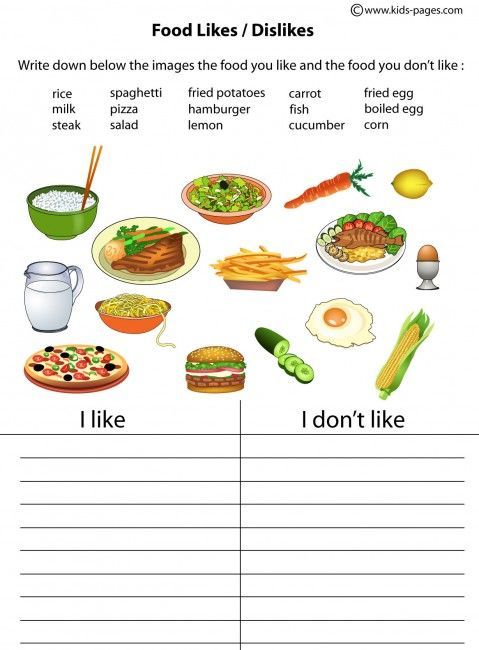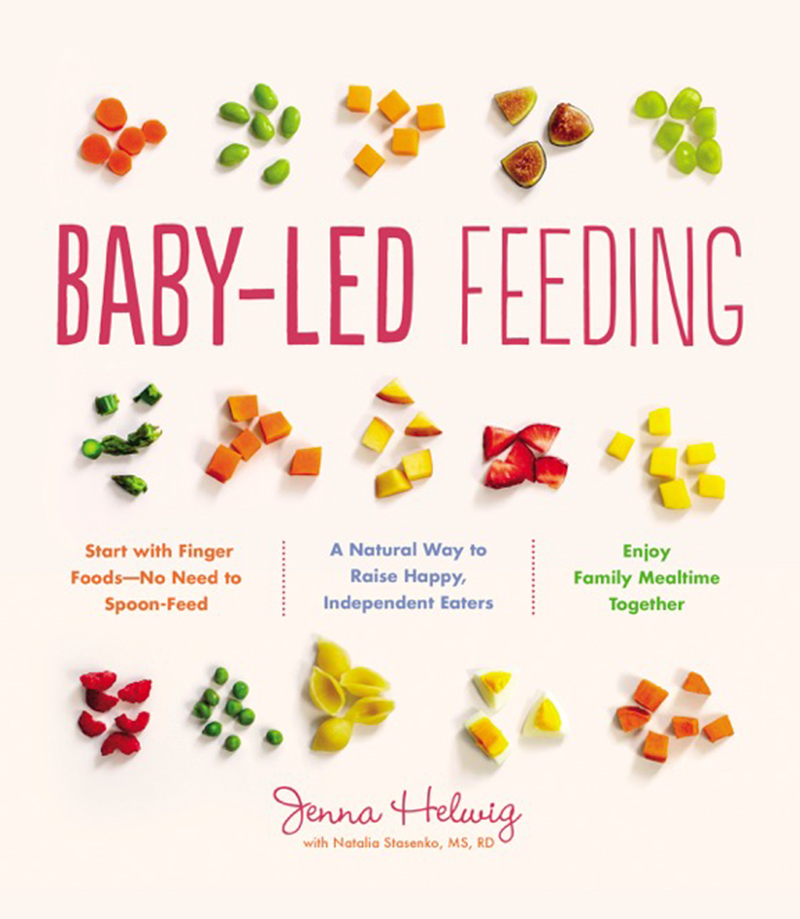Baby takes 2 hours to feed
Newborn Feeding Every 2 Hours
Is your newborn feeding every 2 hours at night? Whether breastfed or formula-fed, lean how to stretch feedings and sleep a little longer.
Every 2 hours.
Almost on cue, your newborn will wake up after 2 hours screaming for yet another feeding. It doesn’t help when moms of other babies—even younger than yours—are stretching their feeds, sometimes up to five hours at night.
Yes, she’s still in the newborn stage, so you understand that her tummy is small and her sleep is erratic. But weeks, even months, into parenthood and your little one still wakes up every 2 hours on the dot.
And so, the questions pile on.
How can you get her to sleep in longer stretches? Is it normal for her to still feed so frequently, especially when others seem to go longer between feeds? Could you be doing something that’s holding her back instead of encouraging her to eat more?
How to handle your newborn feeding every 2 hours
Weeks and months after welcoming my first-born home, I still felt stuck.
Frequent feedings seemed more understandable in the early days, but when you’ve been doing this forever, it can feel depressing. I didn’t know when I’d ever get a full night of sleep again, and started to resent how often my baby nursed, especially at night.
In hindsight, I can see how short those weeks and months are compared to the grand scheme of things. But when you’re in that moment, every day can feel like an eternity, not knowing if or when life will feel normal again.
Rest assured mama, feeding every 2 hours is normal, not only in the newborn stage but I’d say throughout our lives. Think about it: even adults tend to eat in 2-3 hour chunks, with snacks eaten between meals.
But the biggest concern you likely have is the frequent feeding at night. Maybe you’re wondering when your baby will be able to eat mostly during the day and sleep at night. Because eventually, we all consume our calories during the day, even older infants. Why does it feel like yours is so far from that point?
Why does it feel like yours is so far from that point?
First, an important note: a newborn isn’t going to sleep the whole night just yet. I sleep trained my kids to go 11-12 hours straight only once they were well past the newborn stage. That said, what do you do when your little one is still too young to sleep train, but you want to encourage her to go longer between feeds?
Take a look at these steps you can try:
1. Don’t keep your baby awake too long
As a first-time mom, I assumed babies would sleep when they were tired. So, it wasn’t unusual for me to keep my baby awake for long stretches, unaware that he needed help falling asleep.
Only later did I learn that keeping him awake led him to feeling overtired and cranky. The result? Frequent wake ups between feeds and a more difficult time settling him back down.
In other words, there’s a good chance your newborn is waking up every 2 hours not out of hunger, but from feeling overtired.
Try not to keep her awake too long—90 minutes at most, and sometimes she’ll need to sleep as soon as 45 minutes after waking up.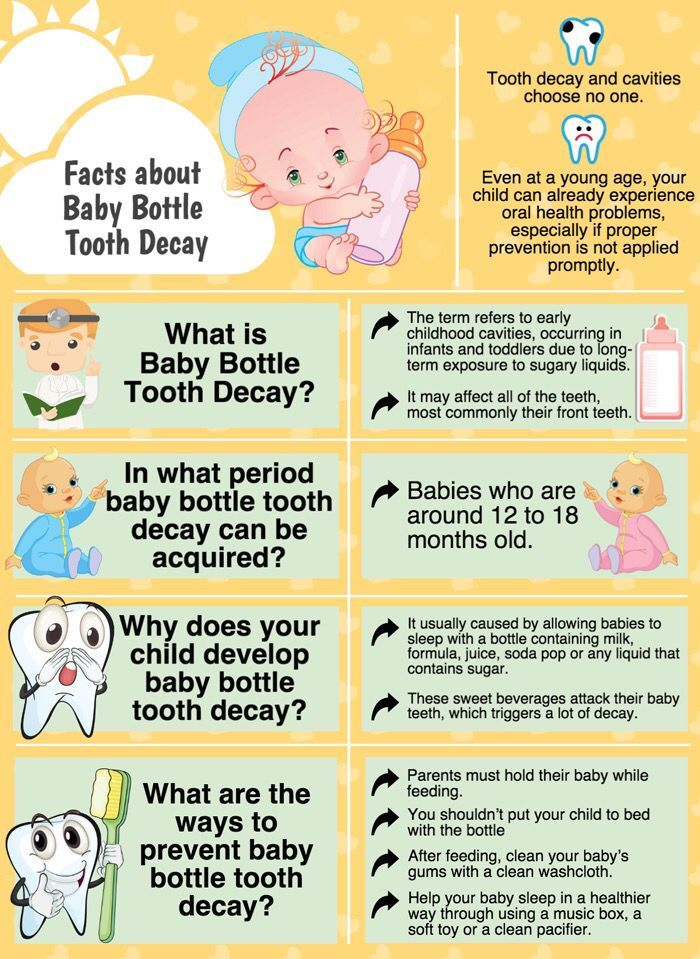
Free: Do you struggle with getting her to sleep? Her awake time just might be affecting how well she sleeps or not. Join my newsletter and get One Mistake You’re Making with Your Baby’s Awake Time—at no cost to you.
Don’t make the same mistakes I did—help her fall asleep with this one simple trick! Grab it below:
2. Feed often during the day
Feeding on demand is so important during the newborn stage, but tell that to any new mom and you might be met with dagger eyes. After all, it can be difficult to feel tied to your baby 24/7, especially if you’re the only one who can feed her.
But feeding on demand, especially during the day, ensures that she’s getting all the food she needs. Don’t try to cap her off or put her on a schedule. Instead, follow her lead and feed as often as she wants during the day.
And hopefully, by having fed plenty the whole day, she’ll have less of a need to wake up often at night. Don’t expect her to sleep through the night yet, but at least you’re filling her up during the day when she’ll start to take in most of her feeds down the line.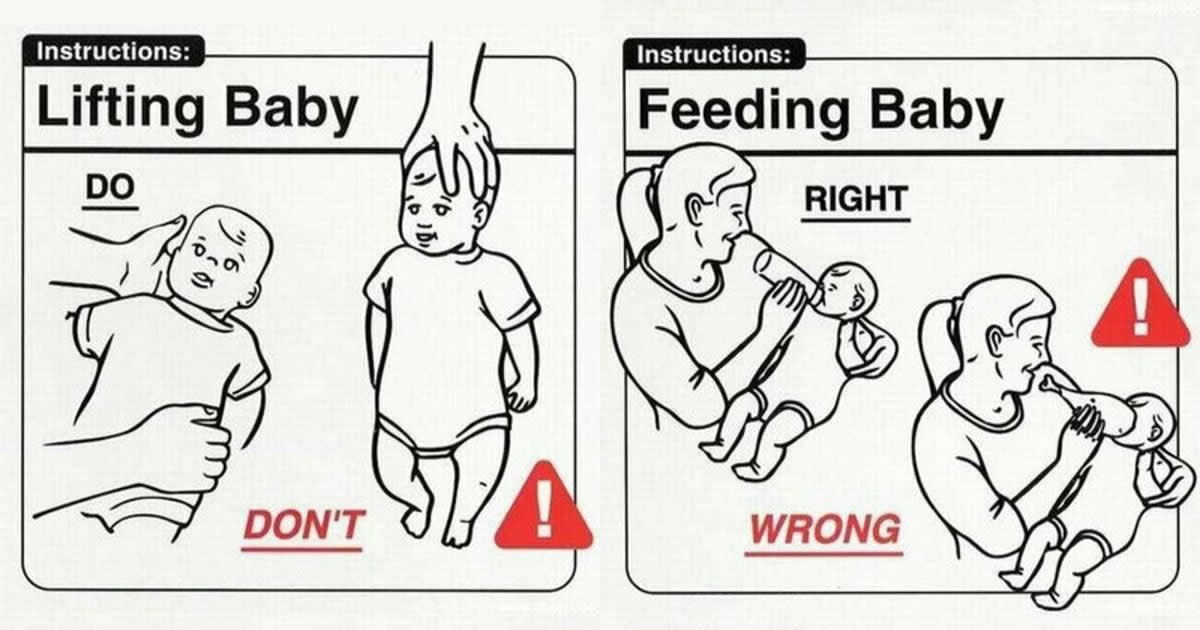
How to handle a newborn constantly feeding.
3. Feed extra before bedtime
The first stretch of sleep after bedtime tends to be the longest. This is when you’ll likely grab five hours of uninterrupted sleep compared to, say, four o’clock in the morning. Help your baby sleep longer for that first stretch by offering her a bit of extra food for her bedtime milk.
If you breastfeed, see if she’ll take a few extra minutes of nursing (or simply wait for her to pull away instead of putting a time limit). If you bottle-feed, try to add an extra ounce before setting her down for the night.
By topping her off with extra milk, you can ensure that she won’t wake up too soon after from hunger.
4. Dream feed
If you’re like most parents, you put your baby down for the night before your own bedtime. For instance, you might set her down at 7:30pm, then head to bed yourself at 10pm.
One trick that can pre-empt her first wake up is to offer a dream feed before you go to bed yourself. Let’s say you go to sleep at 10pm. Give her another feed at 9:30pm to top her off even further for the night. This allows you to feed her while you’re still awake and alert, and extends her feeding even more.
Let’s say you go to sleep at 10pm. Give her another feed at 9:30pm to top her off even further for the night. This allows you to feed her while you’re still awake and alert, and extends her feeding even more.
It’s okay if she’s groggy and half asleep as she feeds—there’s no need to wake her up all the way. This is more to give her a feed before she asks for it while you’re still awake.
Get more tips about dream feeding.
5. Make sure your baby is actually eating
Does it seem like your baby wakes up right after you had just fed her? There might be a chance she’s not even drinking at all, which could explain why she’s hungry so soon after feeding her. Instead of drinking, she might be half asleep and sucking for comfort, especially if she drifts off to sleep mid-feed.
How can you tell she’s eating? Listen for a swallowing sound—she should actually be gulping milk down. And look at her throat to see if it moves with each gulp. If you don’t hear a sound and her throat doesn’t move, she just might be moving her mouth and sucking.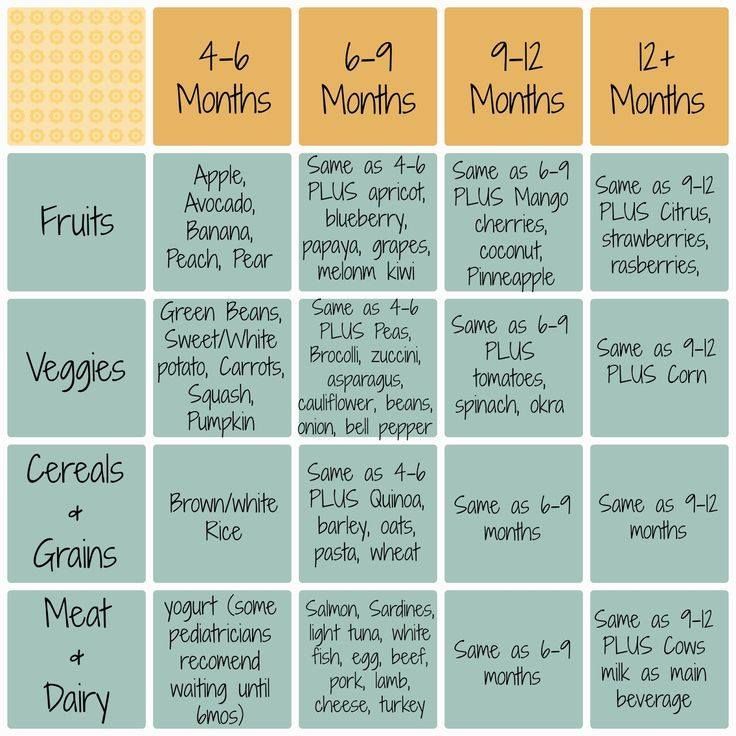
If you suspect that she falls asleep, burp her mid-feed, talk to her, tickle her, and otherwise ensure that she stays awake while she feeds.
Learn how to stop your baby from snacking on the breast.
6. Give your baby a chance to settle
Newborns are notorious for making all sorts of sounds, even while they’re sound asleep. But back then, I’d sit up right away the minute my little guy made a peep (it didn’t help that he was in the same room as me). I felt compelled to scoop him up immediately, fearing that those sounds would escalate into full-on cries.
I’ve since learned that those sounds, and even the small whimpers and cries, can often settle on their own. The next time you hear your baby cry, try to discern the type of cry first. Does she sound like she’s complaining and whimpering, or is she angry and in need of your attention right away?
If it sounds like she might settle down, wait one minute. She might not be waking up out of hunger. This is also a little practice that will help her overcome small discomforts.
This is also a little practice that will help her overcome small discomforts.
Conclusion
A newborn feeding every 2 hours isn’t always easy to handle. Your baby finally falls asleep, only to rest for a short while before he seems hungry again. How can you get him to sleep longer at a time?
Don’t keep him awake too long, as frequent wake ups could be a result of feeling overtired. Feed often during the day instead of capping him at a certain time or by a particular schedule. Give him extra milk before bedtime and take advantage of that long first stretch of sleep.
Before heading to bed yourself, offer a dream feed to top him off for the night while you’re still awake and alert. Make sure he’s actually eating and not just sucking for comfort. And lastly, don’t feel compelled to respond right away—he might be asleep or making small sounds and eventually settle herself down.
You can do certain things to help you stretch those feedings at night—instead of waking up every 2 hours as if on cue.
Get more tips:
- How to Get Your Baby to Adjust Using a Newborn Schedule
- 4 Reasons Your Baby Never Seems Satisfied After Breastfeeding
- Baby Feeding Every Hour (And Not Sleeping, Either)?
- 11 Ways to Cope with Newborn Sleep Deprivation
- 12 Things to Do When Your Newborn Fights Sleep
Don’t forget: Join my newsletter and get One Mistake You’re Making with Your Baby’s Awake Time—at no cost to you:
Breastfeeding FAQs: How Much and How Often (for Parents)
Breastfeeding is a natural thing to do, but it still comes with its fair share of questions. Here's what you need to know about how often and how long to breastfeed your baby.
How Often Should I Breastfeed?
Newborn babies should breastfeed 8–12 times per day for about the first month. Breast milk is easily digested, so newborns are hungry often. Frequent feedings helps stimulate your milk production during the first few weeks.
By the time your baby is 1–2 months old, he or she probably will nurse 7–9 times a day.
In the first few weeks of life, breastfeeding should be "on demand" (when your baby is hungry), which is about every 1-1/2 to 3 hours. As newborns get older, they'll nurse less often, and may have a more predictable schedule. Some might feed every 90 minutes, whereas others might go 2–3 hours between feedings.
Newborns should not go more than about 4 hours without feeding, even overnight.
How Do I Count the Time Between Feedings?
Count the length of time between feedings from the time your baby begins to nurse (rather than at the end) to when your little one starts nursing again. In other words, when your doctor asks how often your baby is feeding, you can say "about every 2 hours" if your first feeding started at 6 a.m., the next feeding was around 8 a.m., then 10 a.m., and so on.
Especially at first, you might feel like you're nursing around the clock, which is normal. Soon enough, your baby will go longer between feedings.
Soon enough, your baby will go longer between feedings.
How Long Does Nursing Take?
Newborns may nurse for up to 20 minutes or longer on one or both breasts. As babies get older and more skilled at breastfeeding, they may take about 5–10 minutes on each side.
How long it takes to breastfeed depends on you, your baby, and other things, such as whether:
- your milk supply has come in (this usually happens 2–5 days after birth)
- your let-down reflex (which causes milk to flow from the nipple) happens right away or after a few minutes into a feeding
- your milk flow is slow or fast
- the baby has a good latch, taking in as much as possible of your areola (the dark circle of skin around your nipple)
- your baby begins gulping right away or takes it slow
- your baby is sleepy or distracted
Call your doctor if you're worried that your baby's feedings seem too short or too long.
When Should I Alternate Breasts?
Alternate breasts and try to give each one the same amount of nursing time throughout the day. This helps to keep up your milk supply in both breasts and prevents painful engorgement (when your breasts overfill with milk).
This helps to keep up your milk supply in both breasts and prevents painful engorgement (when your breasts overfill with milk).
You may switch breasts in the middle of each feeding and then alternate which breast you offer first for each feeding. Can't remember where your baby last nursed? It can help to attach a reminder — like a safety pin or small ribbon — to your bra strap so you'll know which breast your baby last nursed on. Then, start with that breast at the next feeding. Or, keep a notebook handy or use a breastfeeding app to keep track of how your baby feeds.
Your baby may like switching breasts at each feeding or prefer to nurse just on one side. If so, then offer the other breast at the next feeding. Do whatever works best and is the most comfortable for you and your baby.
How Often Should I Burp My Baby During Feedings?
After your baby finishes on one side, try burping before switching breasts. Sometimes, the movement alone can be enough to cause a baby to burp.
Some infants need more burping, others less, and it can vary from feeding to feeding.
If your baby spits up a lot, try burping more often. While it's normal for infants to "spit up" a small amount after eating or during burping, a baby should not vomit after feeding. If your baby throws up all or most of a feeding, there could be a problem that needs medical care. If you're worried that your baby is spitting up too much, call your doctor.
Why Is My Baby Hungrier Than Usual?
When babies go through a period of rapid growth (called a growth spurt), they want to eat more than usual. These can happen at any time. But in the early months, growth spurts often happen when a baby is:
- 7–14 days old
- 2 months old
- 4 months old
- 6 months old
During these times and whenever your baby seems extra hungry, follow your little one's hunger cues. You may need to breastfeed more often for a while.
How Long Should I Breastfeed My Baby?
That's a personal choice. Experts recommend that babies be breastfed exclusively (without formula, water, juice, non–breast milk, or food) for the first 6 months. Then, breastfeeding can continue until 12 months (and beyond) if it's working for you and your baby.
Experts recommend that babies be breastfed exclusively (without formula, water, juice, non–breast milk, or food) for the first 6 months. Then, breastfeeding can continue until 12 months (and beyond) if it's working for you and your baby.
Breastfeeding has many benefits for mom and baby both. Studies show that breastfeeding can lessen a baby's chances of diarrhea, ear infections, and bacterial meningitis, or make symptoms less severe. Breastfeeding also may protect children from sudden infant death syndrome (SIDS), diabetes, obesity, and asthma.
For moms, breastfeeding burns calories and helps shrink the uterus. In fact, breastfeeding moms might return to their pre–pregnancy shape and weight quicker. Breastfeeding also helps lower a woman's risk of diseases like:
- breast cancer
- high blood pressure
- diabetes
- heart disease
It also might help protect moms from uterine cancer and ovarian cancer.
How to wake up a baby for feeding and whether it is necessary to wake up a baby in the afternoon
05/29/2020
95
For any parent, the question of whether to wake up the baby is not easy. On the one hand, there are fears that a child who has been sleeping for a long time will not be able to fall asleep later, and on the other hand, how to raise such an angel who has been put to bed for so long...
On the one hand, there are fears that a child who has been sleeping for a long time will not be able to fall asleep later, and on the other hand, how to raise such an angel who has been put to bed for so long...
so that his sleep is not affected.
Let's start with the smallest children. You've probably heard the phrase "never wake a sleeping baby." But it is not always fair. Some newborn babies wake up on their own for feedings, while others need to be awakened. Whether or not you need to wake your baby depends on their age, weight, and overall health. nine0003
The American Academy of Pediatrics recommends waking your baby for feedings if he sleeps more than 4 hours in the first two weeks of life. On average, a baby needs feeding every 2-3 hours.
Frequent feeding is very important for several reasons:
- The baby's stomach is very small, the baby quickly digests breast milk. Faster than a mix. Therefore, physiologically, the child necessarily needs frequent feedings every 2-3 hours.
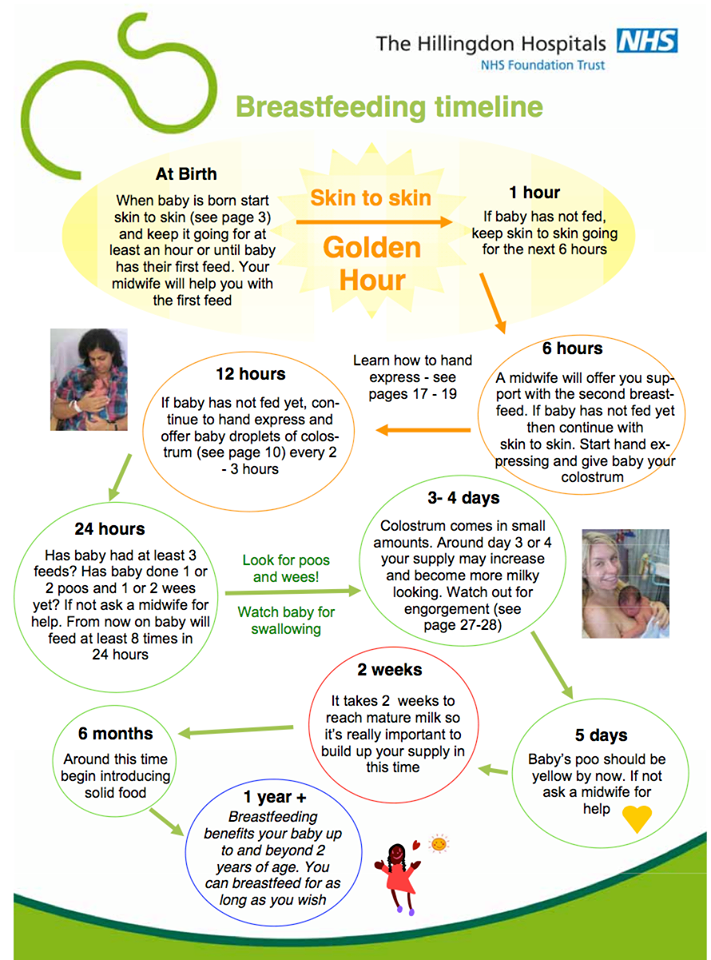
- Babies can sometimes sleep even when hungry, thus malnourished, which affects their development. nine0018
- After birth, the baby loses 5-10% of its body weight. And in the first weeks he needs to gain weight. Lack of milk or formula slows down this process.
- A short interval between feedings helps to maintain lactation. That allows you to avoid problems with a shortage of milk in the future.
Tears already signal strong hunger. Therefore, it is better to breastfeed the baby before the baby starts crying. Learn to recognize the early signs of hunger: the baby puts his hand in his mouth, smacks his lips, tossing and turning when he sleeps. nine0003
Should the baby be woken up to feed during the day? In general, if an infant sleeps for more than 3 hours in one dream during daylight hours, he must be awakened. Then the mother can feed the already awakened baby. This makes it possible to adjust the work of the biological rhythms of the baby.
How to Wake Up
- Help your child gradually fall asleep by stroking their arms, legs or lightly tickling them.
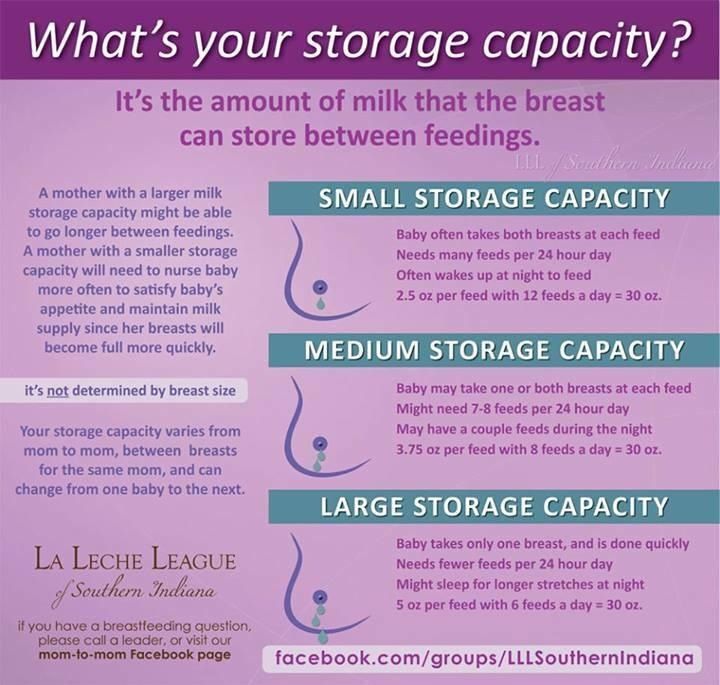
- Change diaper. Often this is enough for the baby to wake up and be ready to eat. nine0018
- Undress and place skin to skin on your chest. You can squeeze a few drops of milk onto your baby's mouth. He will smell and taste it and begin to suck on the breast.
- Speak - he will hear your voice and wake up.
- Do not turn on bright lights. A dim light is sufficient. The bright light will blind your eyes.
- If the baby has attached to the breast but has not begun to suckle, stroke his cheek.
How long to feed
As soon as the baby wakes up and starts to eat, make sure that the feeding is long enough to empty at least one breast. So we will know that he ate hind milk, which is necessary for the growth of the child's body. Some babies take 45 minutes or more to feed one breast, and some do it in 10 minutes.
The sucking reflex promotes falling asleep. Therefore, make sure that the baby does not fall asleep while feeding.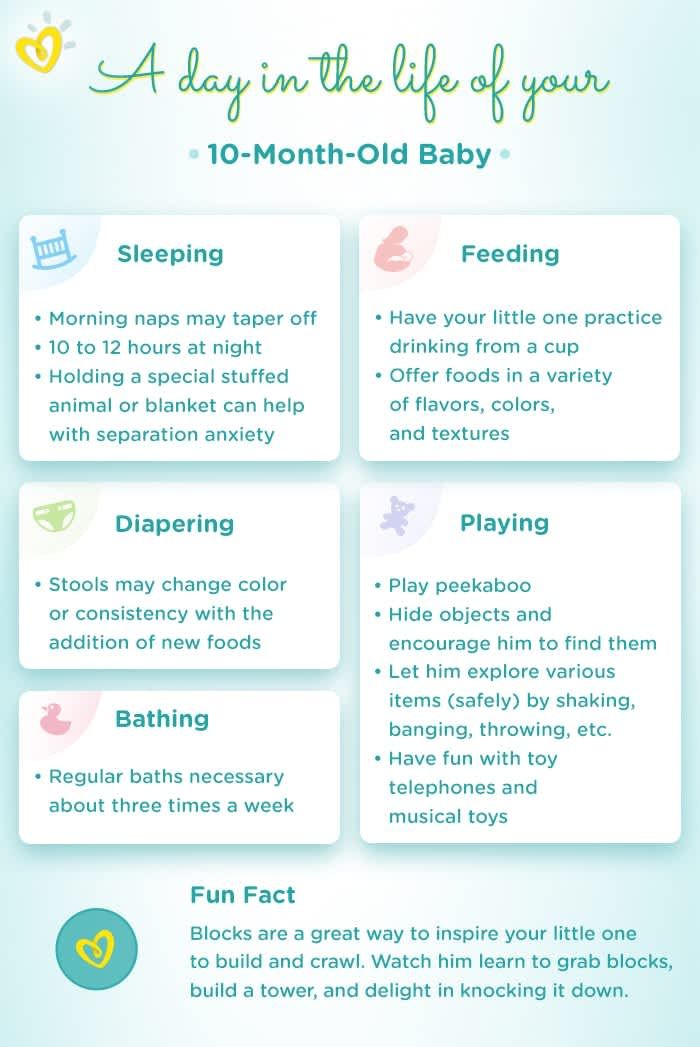 If he falls asleep, change position, lift him up to burp, and then start feeding again. nine0003
If he falls asleep, change position, lift him up to burp, and then start feeding again. nine0003
By 6 months you will have a more or less predictable eating schedule. But each baby will have his own. Some of the children eat every 2 hours, and someone is able to stay without food for 3-4 hours by the second month of life. This is especially true for children who are formula fed.
The length of time between feedings increases as the child grows older. By the age of six months, many babies can already go without supplements at night or are able to sleep for longer periods.
nine0002 If a child wakes up too often after 6 months and asks for food at night, perhaps this is no longer hunger, but a way to relax and fall asleep.
Avoid using a pacifier in the first weeks after delivery. The pacifier helps the child to calm down and prolong sleep. So you may not notice that your baby is hungry. Therefore, start using a pacifier no earlier than 4-6 weeks and when you are lactating.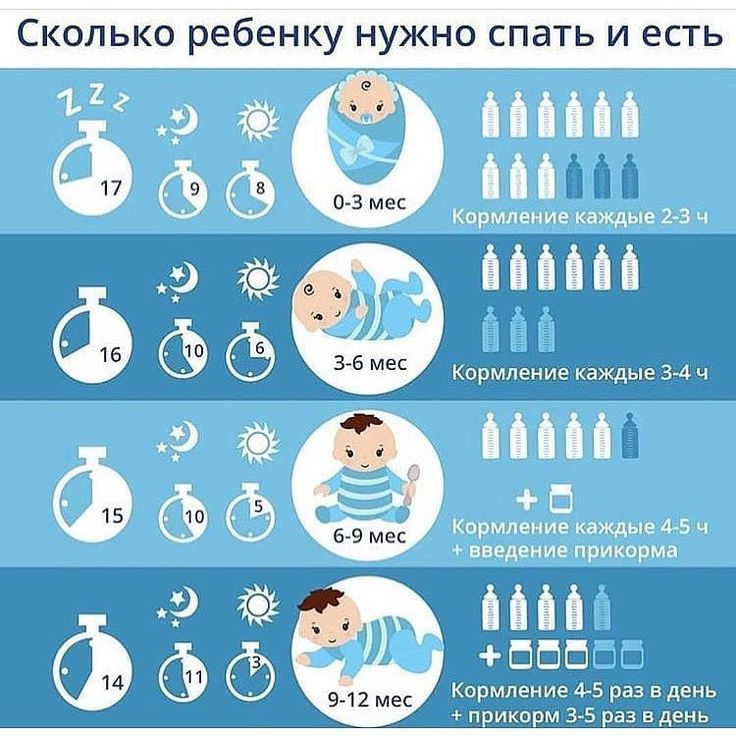
Should the baby be woken up to feed formula? As with breastfeeding, the newborn needs frequent formula feeding. But the interval will be more than 3-4 hours. nine0003
When it is necessary to wake up the child
It is important to wake up the baby in the morning if he has fallen asleep later than 7.00. This is especially true for children who still sleep 1-2-3 times during the day and have already developed a relatively stable routine. So you create the perfect routine in the morning.
After waking up, children need time to work up their fatigue for their next nap, the ideal window for which is around 9 and 1 pm (depending on age).
Therefore, if the baby slept until 8 am, he simply will not be able to fall asleep in his first daytime sleep. nine0003
In order for the baby to wake up calmly without tears, you can enter a wake-up ritual. It allows the child to smoothly transition from a sleepy state to wakefulness.
Example of a wake-up ritual:
- Open curtains/turn on lights
- Welcome words and a kiss
- Snacks, nursery rhymes after sleep
- Happy song
Then you can get up and start breakfast.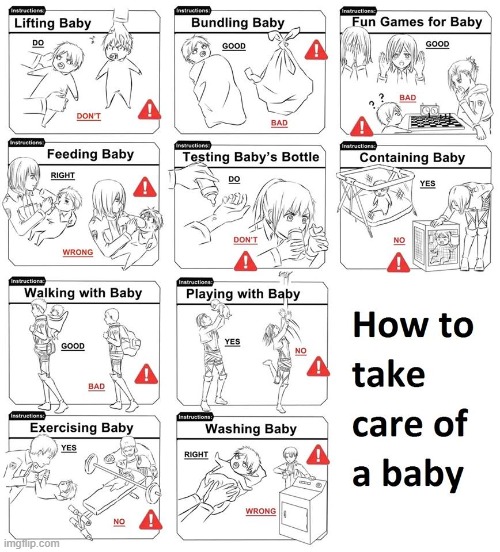 For older children, such a ritual is also necessary. nine0003
For older children, such a ritual is also necessary. nine0003
The awakening ritual has different purposes:
- Marks the end of sleep,
- Teaches a child that everyday sounds are not a reason to wake up,
- Helps prevent baby from crying when waking up.
It will also be useful to have a light alarm. If the baby wakes up early, he will stay in bed until he sees the light on the clock.
When to wake your baby up after a nap
Many babies from 4 to 8 months sleep three times a day. nine0003
In this mode, it is important to wake up the baby after the third nap no later than 17.00. The duration of this segment is about 45 minutes, but not more than an hour. Then you can easily put the baby to bed by 19 o'clock.
Transition to one nap
At the age of 15-18 months there is a transition to one nap. It can be long and take place in different ways.
For example:
In the morning, the baby falls asleep easily and sleeps up to 2 hours.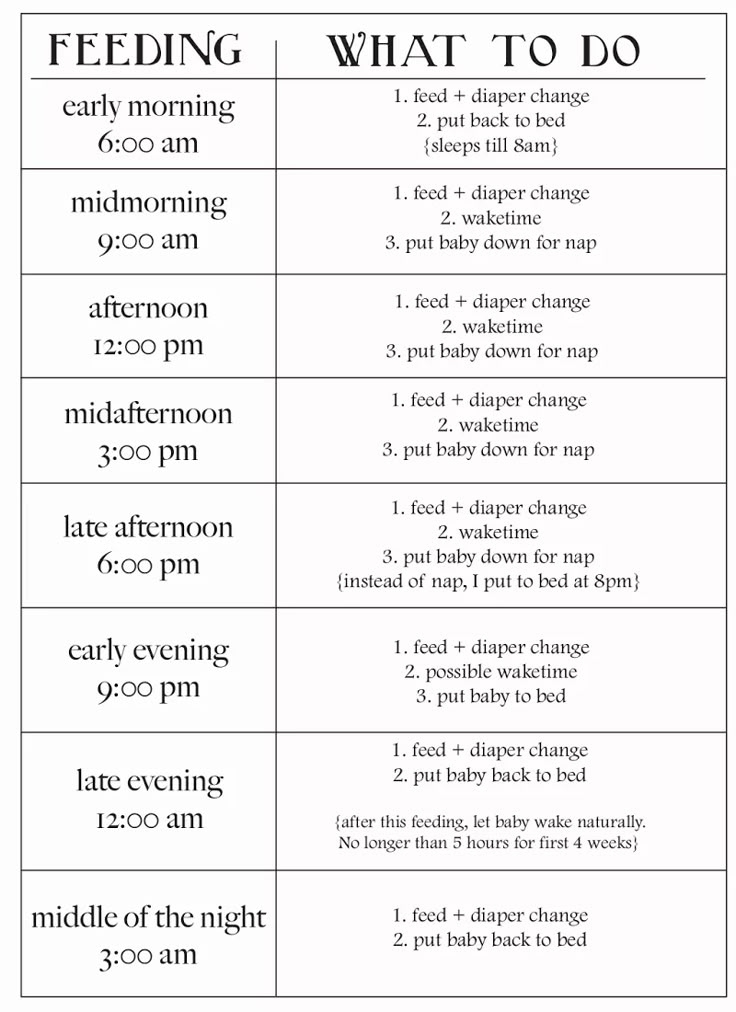 But then it is difficult to put it in lunch. And by the evening without rest at lunchtime, he is already overworked and falls asleep with difficulty. nine0003
But then it is difficult to put it in lunch. And by the evening without rest at lunchtime, he is already overworked and falls asleep with difficulty. nine0003
So if this is your case, you can pick up the baby after 60-75 minutes. At the same time, move the start of the second sleep 15 minutes later. But if the baby sleeps for 1 hour in the morning and then it’s already difficult to fall asleep a second time, start putting him down only at lunchtime.
One nap after 2 years
Between 2.5-5 years, naps may disappear. Here again, the story described above is often repeated. It seems that the child falls asleep perfectly during the day, sleeps for a long time, but in the evening, laying down is delayed until 10-11 pm. The problem is that getting up early in the morning to the garden usually does not allow you to sleep the necessary 10-11 hours per night. And again, you will have to gradually limit the duration of daytime rest. Wake your baby up after 60 minutes first, then skip the daytime so your baby sleeps better at night.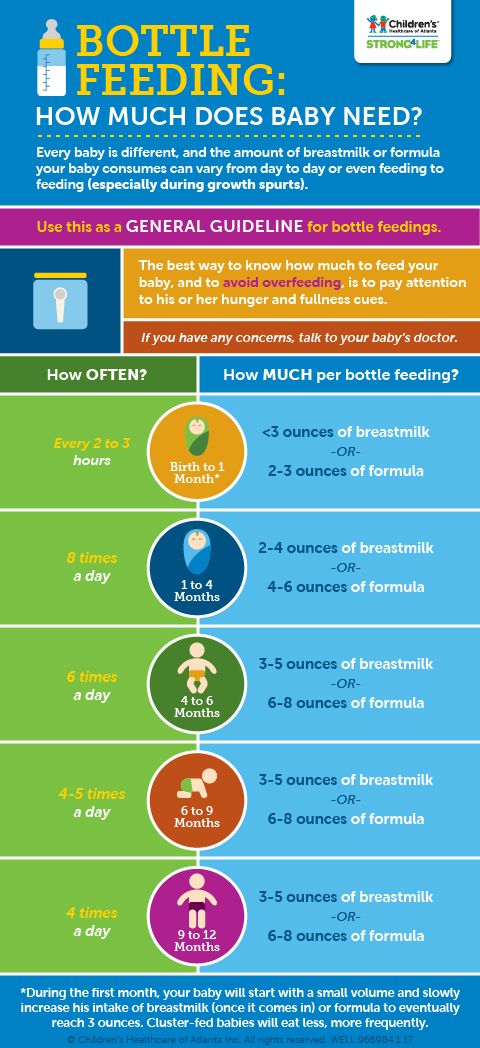 nine0003
nine0003
Keep an eye on your baby while doing this. If he is calm in the evening and falls asleep easily, and wakes up later than 6 o'clock in the morning in a good mood, then you are doing everything correctly.
If you notice excessive moodiness in the late afternoon or regular awakenings too early, then it is worth giving the baby more time to rest at lunchtime.
Like this article? Rate:
Votes: 91
Why does the child eat at night - find out on the site
“Eating after 6 is bad”, “At night you need to sleep, not eat”… We are used to the fact that snacking at night is a sign of an eating disorder. However, sometimes even adults find it difficult to endure a break between meals, especially if it lasts more than 8-9 hours.
Newborn babies grow as fast as ever at any other age: in the first year, their weight increases by 3 times, and their height is about half. This is only possible if they receive nutrients regularly.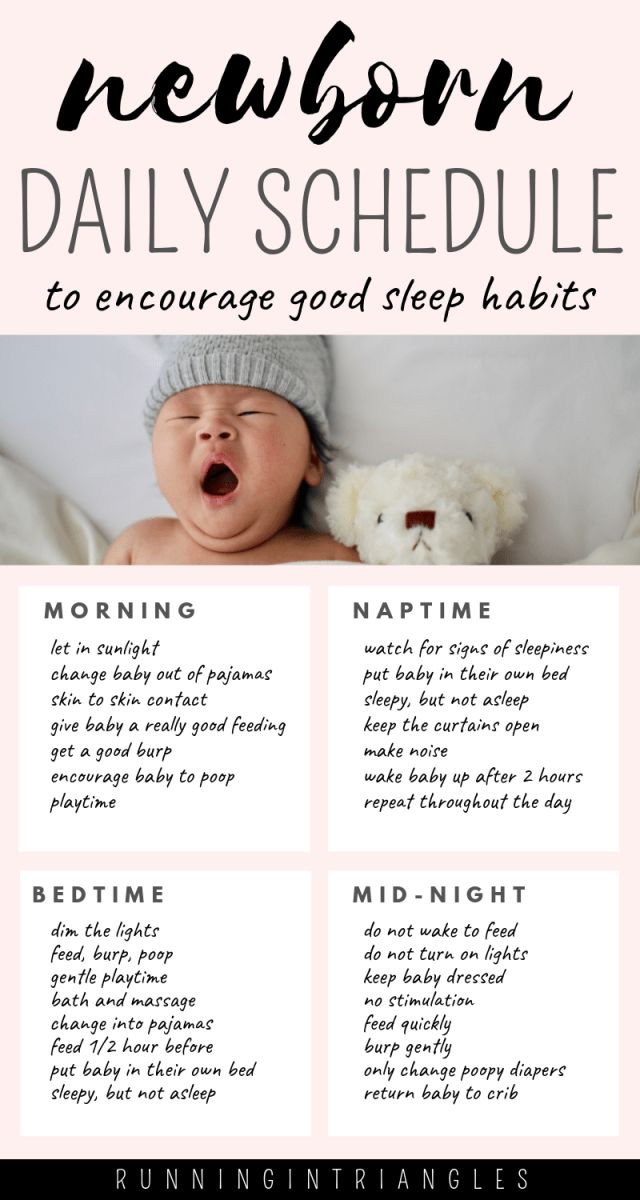 That is why it is completely normal that the child wakes up at night and asks for food. This is not a whim and an unusual feeling of discomfort, this is real hunger! nine0003
That is why it is completely normal that the child wakes up at night and asks for food. This is not a whim and an unusual feeling of discomfort, this is real hunger! nine0003
Why does eating at night cause such anxiety in parents? The fact is that sometimes night feedings stretch out all night, distracting the child and the parents themselves from another important activity - sleep. Sleep deprivation, like lack of nutrition, leads to serious consequences that should not be ignored.
Until what age does a child eat at night?
Despite the simplicity of this issue, the largest pediatricians in the world still cannot agree. Renowned doctor Richard Feber claims that babies older than 3 months no longer need night feedings. The luminary of pediatrics Evgeny Komarovsky pushes this bar up to 6 months, and the famous William Sears believes that feeding at night is necessary for at least one year. nine0003
Most practitioners use the following guidelines, which may vary slightly depending on the needs of the child:
- Up to 3 months, feed every 3 hours.
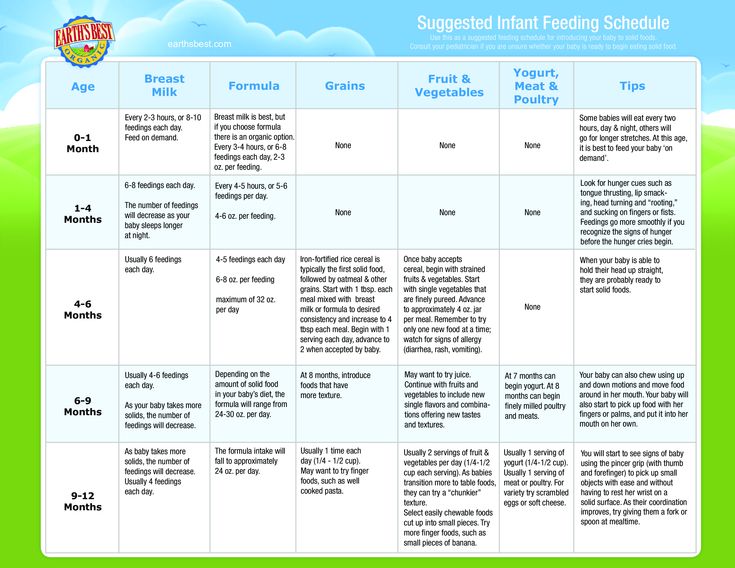
- 3-4 months - 2-3 feedings per night.
- 5-6 months - 1-2 feedings per night.
- 7-9 months - 1 feeding per night, in case of illness or weakness - 2 feedings.
- 10-12 months - feed only when necessary (stress, illness). nine0018
If a child is a year old and still eats at night, this behavior can lead to disruption of the regimen and the formation of a chronic lack of sleep. In addition, night feedings have a negative effect on milk teeth, causing early caries.
The child often eats at night - what to do? 8 steps to restful sleep.
What if your child does not comply with the recommendations and continues to eat frequently at night? We offer you an 8-step strategy that will lead you to stop feeding at night and sleep soundly throughout the night. nine0003
- Make sure it's hunger. When the baby wakes up at night, check if he is really hungry or if the anxiety is caused by other factors (too hot or cold, wet diapers, the usual “failure” to fall asleep between sleep phases).
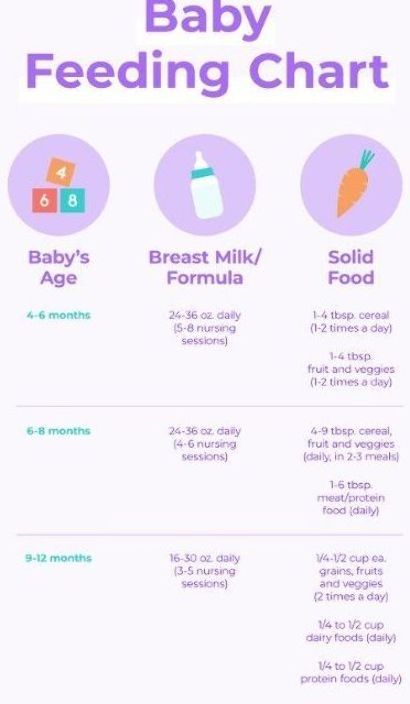
- Don't hurry! Let the process of not eating at night be gradual. Every night, increase the interval between feedings, skipping one every 2-3 days until the desired amount. Some children will take longer to do this than others. nine0018
- Please select the correct time. Illness, a move, or another change of scenery is not the right time to refuse food at night.
- Feed enough throughout the day. The abundance of high-quality and tasty food by age, with a high content of protein, vitamins and trace elements will be the key to feeling full throughout the night.
- Add a second dinner 1 hour before bedtime. It should be a nutritious but easily digestible meal, such as sour milk products. Avoid eating sweets and desserts at night, as they provoke excessive excitement. nine0018
- Ask for help with bedding. Let another parent, grandmother or even an older child put the baby to bed instead of you. This item is especially important when breastfeeding.
- Be patient.





